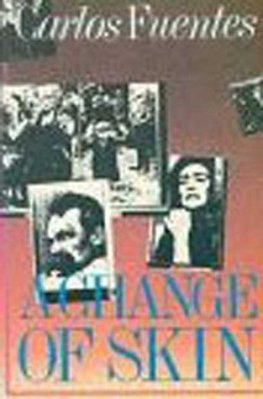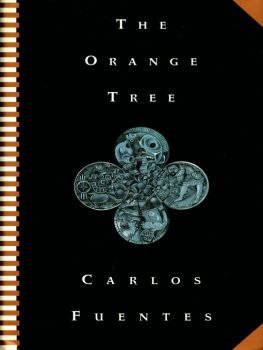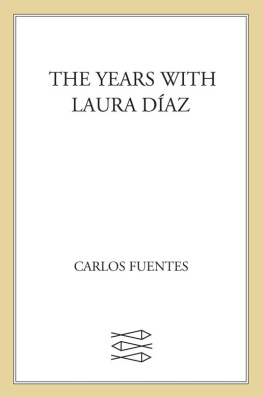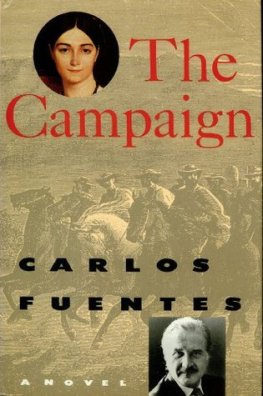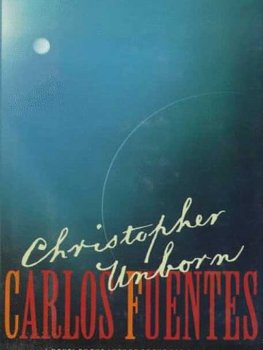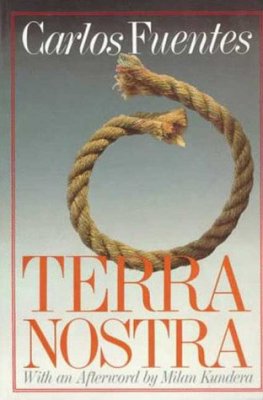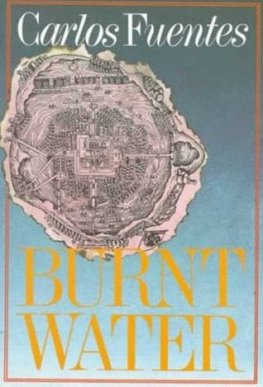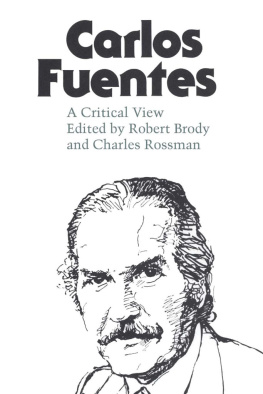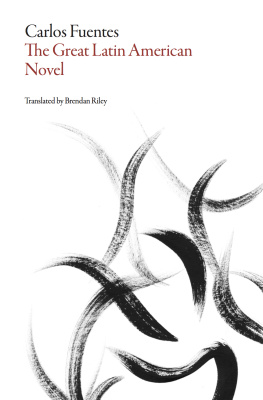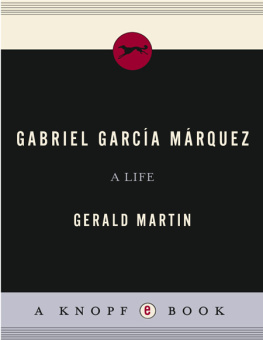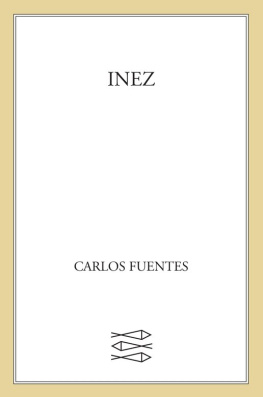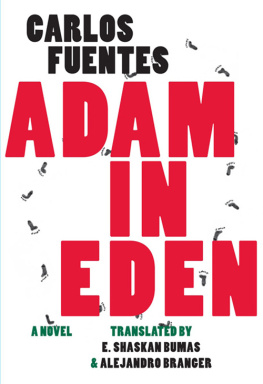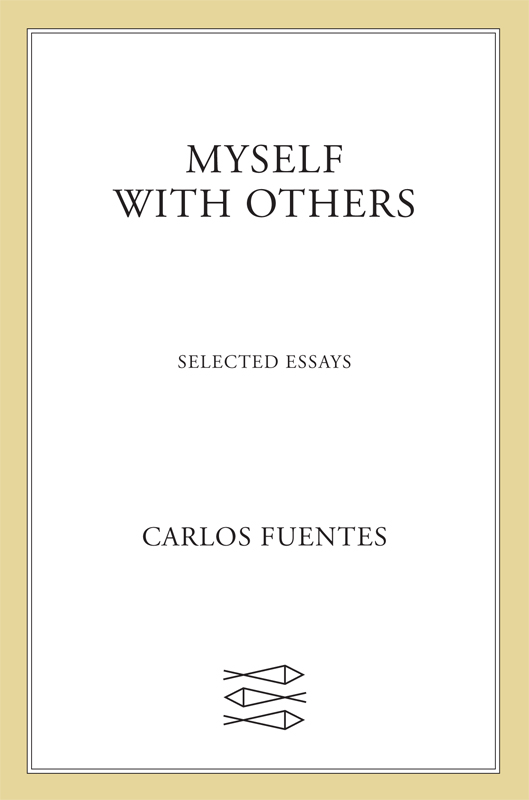
The author and publisher have provided this e-book to you for your personal use only. You may not make this e-book publicly available in any way. Copyright infringement is against the law. If you believe the copy of this e-book you are reading infringes on the authors copyright, please notify the publisher at: us.macmillanusa.com/piracy.
CONTENTS
To Philip Roth and Claire Bloom
PART ONE
MYSELF
How I Started to Write
I
I was born on November 11, 1928, under the sign I would have chosen, Scorpio, and on a date shared with Dostoevsky, Crommelynck, and Vonnegut. My mother was rushed from a steaming-hot movie house in those days before Colonel Buenda took his son to discover ice in the tropics. She was seeing King Vidors version of La Bohme with John Gilbert and Lillian Gish. Perhaps the pangs of my birth were provoked by this anomaly: a silent screen version of Puccinis opera. Since then, the operatic and the cinematographic have had a tug-of-war with my words, as if expecting the Scorpio of fiction to rise from silent music and blind images.
All this, let me add to clear up my biography, took place in the sweltering heat of Panama City, where my father was beginning his diplomatic career as an attach to the Mexican legation. (In those days, embassies were established only in the most important capitalsno place where the mean average year-round temperature was perpetually in the nineties.) Since my father was a convinced Mexican nationalist, the problem of where I was to be born had to be resolved under the sign, not of Scorpio, but of the Eagle and the Serpent. The Mexican legation, however, though it had extraterritorial rights, did not have even a territorial midwife; and the Minister, a fastidious bachelor from Sinaloa by the name of Ignacio Norris, who resembled the poet Quevedo as one pince-nez resembles another, would have none of me suddenly appearing on the legation parquet, even if the Angel Gabriel had announced me as a future Mexican writer of some, albeit debatable, merit.
So if I could not be born in a fictitious, extraterritorial Mexico, neither would I be born in that even more fictitious extension of the United States of America, the Canal Zone, where, naturally, the best hospitals were. So, between two territorial fictionsthe Mexican legation, the Canal Zoneand a mercifully silent close-up of John Gilbert, I arrived in the nick of time at the Gorgas Hospital in Panama City at eleven that evening.
The problem of my baptism then arose. As if the waters of the two neighboring oceans touching each other with the iron fingertips of the canal were not enough, I had to undergo a double ceremony: my religious baptism took place in Panama, because my mother, a devout Roman Catholic, demanded it with as much urgency as Tristram Shandys parents, although through less original means. My national baptism took place a few months later in Mexico City, where my father, an incorrigible Jacobin and priest-eater to the end, insisted that I be registered in the civil rolls established by Benito Jurez. Thus, I appear as a native of Mexico City for all legal purposes, and this anomaly further illustrates a central fact of my life and my writing: I am Mexican by will and by imagination.
All this came to a head in the 1930s. By then, my father was counselor of the Mexican Embassy in Washington, D.C., and I grew up in the vibrant world of the American thirties, more or less between the inauguration of Citizen Roosevelt and the interdiction of Citizen Kane. When I arrived here, Dick Tracy had just met Tess Truehart. As I left, Clark Kent was meeting Lois Lane. You are what you eat. You are also the comics you peruse as a child.
At home, my father made me read Mexican history, study Mexican geography, and understand the names, the dreams and defeats of Mexico: a nonexistent country, I then thought, invented by my father to nourish my infant imagination with yet another marvelous fiction: a land of Oz with a green cactus road, a landscape and a soul so different from those of the United States that they seemed a fantasy.
A cruel fantasy: the history of Mexico was a history of crushing defeats, whereas I lived in a world, that of my D.C. public school, which celebrated victories, one victory after another, from Yorktown to New Orleans to Chapultepec to Appomattox to San Juan Hill to Belleau Wood: had this nation never known defeat? Sometimes the names of United States victories were the same as the names of Mexicos defeats and humiliations: Monterrey. Veracruz. Chapultepec. Indeed: from the Halls of Montezuma to the shores of Tripoli. In the map of my imagination, as the United States expanded westward, Mexico contracted southward. Miguel Hidalgo, the father of Mexican independence, ended up with his head on exhibit on a lance at the city gates of Chihuahua. Imagine George and Martha beheaded at Mount Vernon.
To the south, sad songs, sweet nostalgia, impossible desires. To the north, self-confidence, faith in progress, boundless optimism. Mexico, the imaginary country, dreamed of a painful past; the United States, the real country, dreamed of a happy future.
The French equate intelligence with rational discourse, the Russians with intense soul-searching. For a Mexican, intelligence is inseparable from maliciousnessin this, as in many other things, we are quite Italian: furberia, roguish slyness, and the cult of appearances, la bella figura, are Italianate traits present everywhere in Latin America: Rome, more than Madrid, is our spiritual capital in this sense.
For me, as a child, the United States seemed a world where intelligence was equated with energy, zest, enthusiasm. The North American world blinds us with its energy; we cannot see ourselves, we must see you. The United States is a world full of cheerleaders, prize-giving, singin in the rain: the baton twirler, the Oscar awards, the musical comedies cannot be repeated elsewhere; in Mexico, the Hollywood statuette would come dipped in poisoned paint; in France, Gene Kelly would constantly stop in his steps to reflect: Je danse, donc je suis.
Many things impressed themselves on me during those years. The United Stateswould you believe it?was a country where things worked, where nothing ever broke down: trains, plumbing, roads, punctuality, personal security seemed to function perfectly, at least at the eye level of a young Mexican diplomats son living in a residential hotel on Washingtons Sixteenth Street, facing Meridian Hill Park, where nobody was then mugged and where our superb furnished seven-room apartment cost us 110 pre-inflation dollars a month. Yes, in spite of all the problems, the livin seemed easy during those long Tidewater summers when I became perhaps the first and only Mexican to prefer grits to guacamole. I also became the original Mexican Calvinist: an invisible taskmaster called Puritanical Duty shadows my every footstep: I shall not deserve anything unless I work relentlessly for it, with iron discipline, day after day. Sloth is sin, and if I do not sit at my typewriter every day at 8 a.m. for a working day of seven to eight hours, I will surely go to hell. No siestas for me, alas and alack and hlas and ay-ay-ay: how I came to envy my Latin brethren, unburdened by the Protestant work ethic, and why must I, to this very day, read the complete works of Hermann Broch and scribble in my black notebook on a sunny Mexican beach, instead of lolling the day away and waiting for the coconuts to fall?
But the United States in the thirties went far beyond my personal experience. The nation that Tocqueville had destined to share dominance over half the world realized that, in effect, only a continental state could be a modern state; in the thirties, the U.S.A. had to decide what to do with its new worldwide power, and Franklin Roosevelt taught us to believe that the first thing was for the United States to show that it was capable of living up to its ideals. I learned thenmy first political lessonthat this is your true greatness, not, as was to be the norm in my lifetime, material wealth, not arrogant power misused against weaker peoples, not ignorant ethnocentrism burning itself out in contempt for others.


